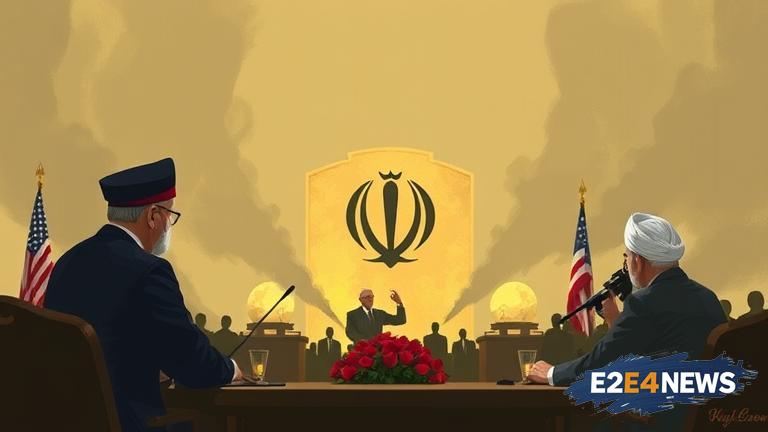Iran has made it clear that any future talks with the US will require accountability for the attacks on its nuclear sites. The Iranian government has been vocal about its demands, emphasizing that the US must take responsibility for its actions. The attacks, which have been attributed to the US and its allies, have caused significant damage to Iran’s nuclear program. Iran has consistently denied any wrongdoing and maintains that its nuclear program is for peaceful purposes. The US, on the other hand, has expressed concerns about Iran’s nuclear ambitions, citing fears of nuclear proliferation. The two countries have been at odds over the issue, with the US imposing strict sanctions on Iran. Despite the tensions, Iran has indicated its willingness to engage in talks, but only if the US meets its demands. The Iranian government has stated that it will not compromise on its sovereignty and will continue to pursue its nuclear program. The US has been urged to lift its sanctions and recognize Iran’s right to a peaceful nuclear program. The international community has called for calm and restraint, urging both sides to engage in diplomatic efforts to resolve the issue. The European Union has expressed its support for a peaceful resolution, emphasizing the need for dialogue and cooperation. The United Nations has also weighed in, calling for an end to the attacks and a return to diplomatic negotiations. Iran has accused the US of attempting to sabotage its nuclear program, citing evidence of cyberattacks and other forms of sabotage. The US has denied any involvement, but Iran remains skeptical. The issue has sparked a heated debate, with some arguing that the US is justified in its actions, while others see it as a clear violation of international law. The Iranian government has vowed to take all necessary measures to protect its nuclear program, including the development of advanced defense systems. The US has warned Iran against any further escalation, threatening severe consequences if it continues to pursue its nuclear ambitions. Despite the warnings, Iran remains committed to its nuclear program, seeing it as a vital component of its national security. The international community is watching the situation closely, fearing a potential conflict that could have far-reaching consequences. The US and Iran have a long and complex history, with tensions dating back to the 1979 revolution. The two countries have been at odds over a range of issues, including Iran’s nuclear program, its support for terrorism, and its human rights record. The US has imposed strict sanctions on Iran, which have had a significant impact on the country’s economy. Iran has responded by developing its own domestic industries and seeking to reduce its dependence on foreign imports. The country has also sought to strengthen its relationships with other nations, including China and Russia, in an effort to counterbalance the influence of the US. The situation remains volatile, with both sides dug in and refusing to back down. The international community is urging calm and restraint, but the situation remains precarious, with the potential for further escalation always present.
